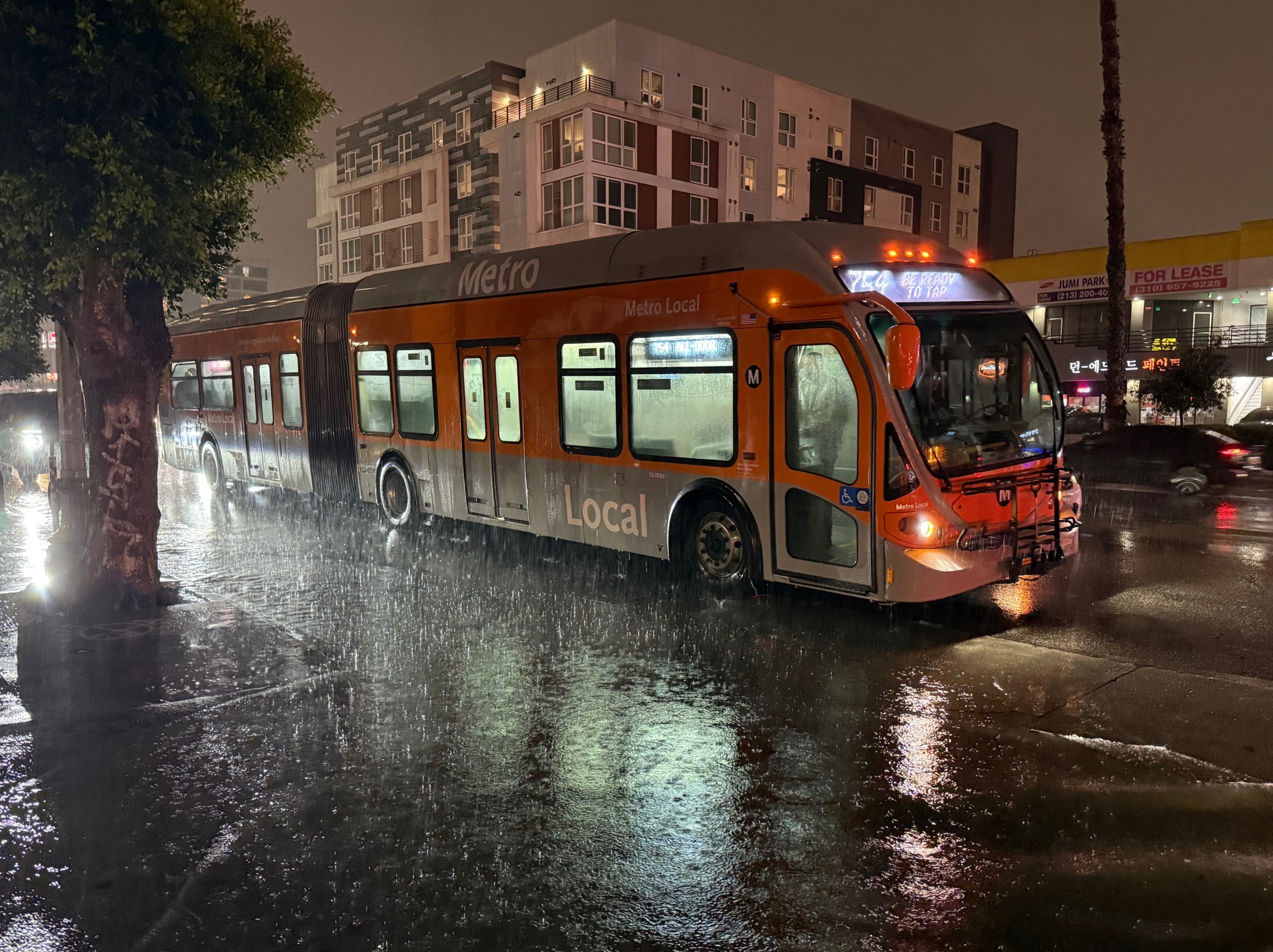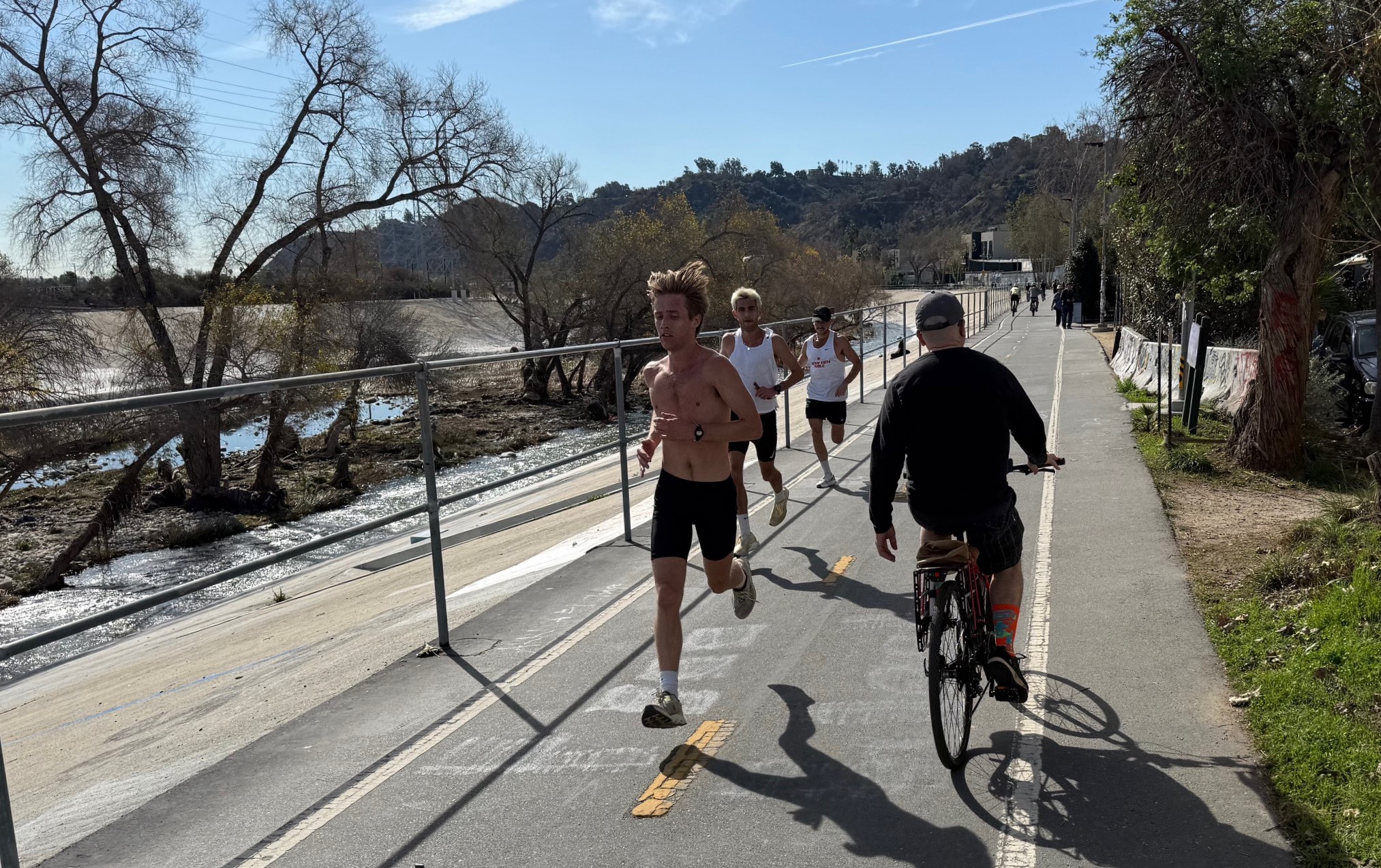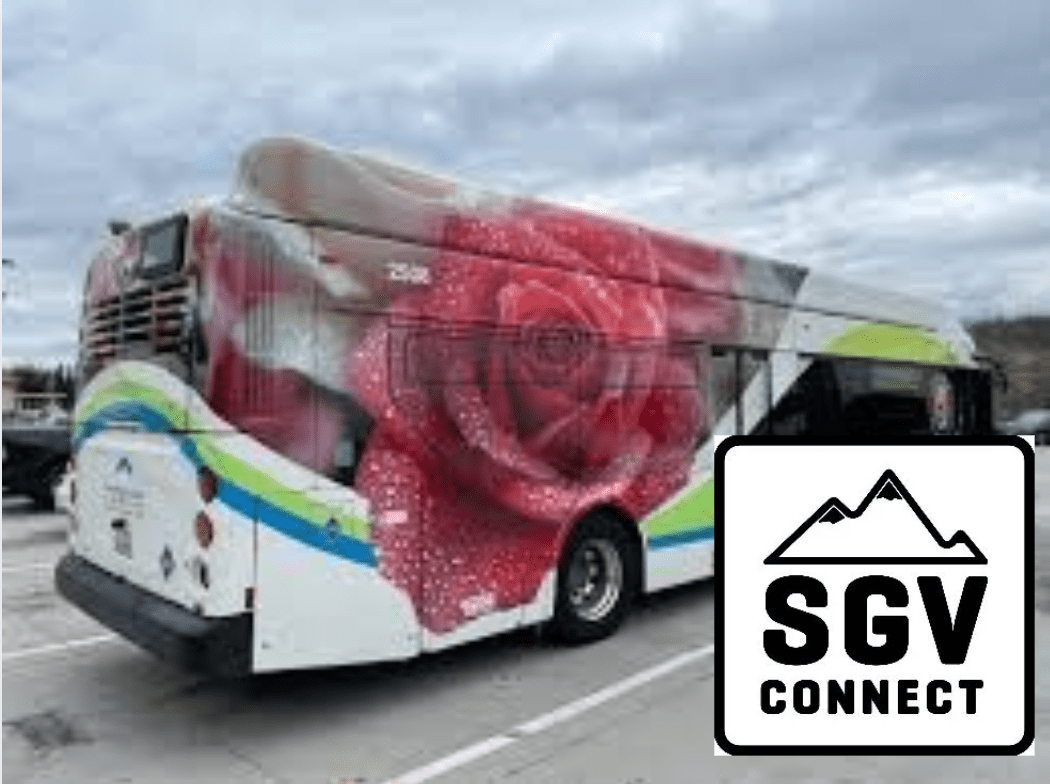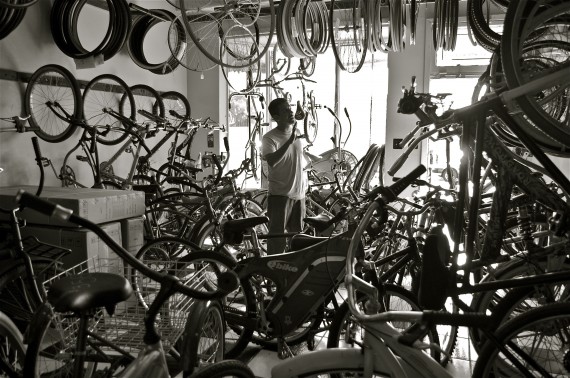
"Stah-LEEN," he enunciated for me, reaching up and tapping the cardboard cutout of a soccer shirt hanging over the cash register. His back to me, he ambled intensely around the workspace looking for a bike part. "Keep talking," he said with an urgent wave of his hand. "I'm listening."
I was still staring at the cardboard shirt that read "Stalin."
No way, I thought.
What are the chances that a Mexican immigrant kid that grows up to become an organizer with the communist party and lives his life in line with socialist principles would be named Stalin?
Pretty good in his case, apparently.
Drawn to ideas of revolution as a way to remedy the social injustices he saw growing up in Boyle Heights and Watts, he spent a decade working as a political organizer in Watts. When the revolution was not forthcoming and he was feeling disillusioned, he signed up for the Army and got himself sent to Iraq. Burned by war, in 2005, he set his sights on opening a bike shop in the heart of Watts, where he has lived since 1992.
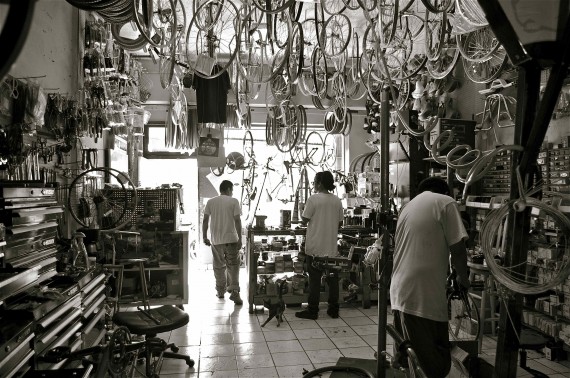
Serving the lower-income and largely commuter crowd offered a more tangible way to make an impact, he felt.
"This bike shop is for the people. It's their shop," he explained when I first met him, gesturing out the window at the world outside. "I see myself as being here to get people from Point A to Point B."
That's easier said than done in a community where people have limited disposable income. Although bicycles are vital to their being able to make a livelihood, many of his customers don't always have the means to pay for the upkeep of their bikes. And they are often riding bikes that were not in great shape to begin with, so they end up coming back regularly for repairs they can't necessarily afford.
Stalin accommodates their needs as best he can. He instituted a 6-month lay-away plan for those who can't afford to buy a bike upfront. His inventory is geared toward serving commuters and he often uses reclaimed parts to keep costs down. He has occasionally loaned money to customers. If customers announce they don't have any money with them, he might tell them to pay him next time. Often, they will. In other cases, they do not. Just yesterday, a customer refused to acknowledge she owed him money, even as she came in seeking another repair. Clearly unhappy at being asked about the money owed, she accused him of being dishonest and trying to sully her good name. In those instances, he is fighting a losing battle. He knows it is unlikely that money will ever be recuperated. But, he's generally not willing to deny service to someone in need. So, he took the bike and told her to come back tomorrow.
"She's owes me money," he said with a mix of frustration and of matter-of-fact certainty after she left.
He shrugged and scratched his head.
"But, she's homeless."
Truth be told, he's not that much better off himself -- he has been living in his shop for the past few years.
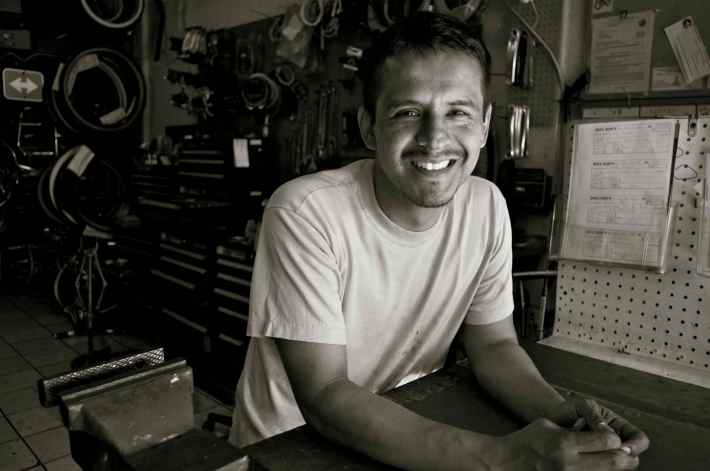
"In my treehouse," he explained, gesturing up at a loft he somehow managed to squeeze in between his inventory and the ceiling.
Keeping the shop afloat while avoiding gouging customers is a tough balancing act, in other words.
So tough, in fact, that he re-enlisted in the Army in 2009 and got himself sent off to Kuwait to keep the shop from going under. His father, step-mother, brother, and friends helped keep the shop open for him while he was on his second tour and continue to step in when he has to take off for weekends or two-week stints as part of his obligations to the Army Reserve.
To anyone else, all that would probably count as sufficient evidence of commitment to serving the community. But he always dismisses that idea with an annoyed shake of his head and wave of his hand.
Pretty early on, he said, he realized that a business model limited his ability to both meet the needs of the people and to do what he finds most fulfilling -- passing on the skills necessary for people to become more self-sufficient. He had hoped that he could partially accomplish that goal by mentoring apprentices. But, that proved more difficult than he expected. The youth would often disappear after becoming frustrated by having to spend so much time cleaning parts or once they got what they needed to fix up their own bikes. And, Stalin himself was frustrated that he didn't have the time, space, or financial wherewithal to interact with customers in a way that would allow him to freely pass on skills and life lessons to those he felt needed them most.
"The shop is at a crossroads," he concluded.
It was time to try putting together a co-op.
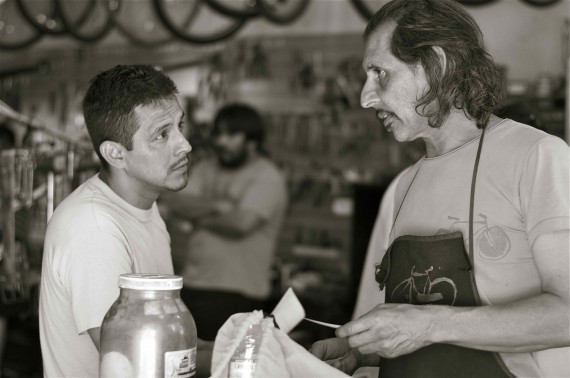
So, that's what we're doing.
For the past three months, Stalin and I have been regularly meeting and talking about how to put his plan into action. On the plus side, he's got tons of old parts, bikes, and tools he's been hoarding for years, portable bike stands, and, most importantly, a space next door to his shop. Currently, it's filled to the brim with his inventory. But, most of it can be temporarily transferred to the shop, as it is unlikely that the shop and the co-op will be open at the same time.
Now, the task at hand consists of figuring out what the specific approach is going to be, developing a corps of volunteers that have the skills and are committed to helping out the community, and getting the word out to the local youth.
With all this in mind, we spent Sunday doing reconnaissance at the Bike Oven and Flying Pigeon in Highland Park. Chicken Leather and Josef Bray-Ali were kind enough to share their know-how and to be honest about the ups and downs of setting up the Oven. We'll be visiting some of the other co-ops in the city as we try to discern the best model for the clientele the Watts co-op is likely to draw.
In anticipation of the launch, Stalin has been testing the waters by talking the idea up to some of the youth that have been coming into his shop. Their responses have been pretty positive. They agree that a co-op is needed in the area and that it would be great to have a place where they could tinker with their bikes and learn the basics.
Ever the activist, Stalin is hoping that the space will be more than just a place to work on bikes. Not unlike the Oven has done, we're looking to use the space to promote art in the community and nurture a social scene that helps to build the sense of community among the youth that is often lacking in the area.
We are crazy enough to think it just might turn out well. A bike shop is, almost by default, a neutral zone in communities like Watts, where the streets are contested. No matter where someone is "from" or who they're running with, at some point, their bike is going to break down. It's therefore in everybody's interest to check their affiliations at the door. That unspoken understanding creates an opening for a co-op to bring potential enemies together and expose them to new ways of thinking about their community and their own role in making it a better place.
We hope.
"Let them decide what it is to become," said Stalin of his desire to see area youth embrace the positive leadership opportunities he hopes the co-op will offer. "I just want to put it in their hands and get out of the way."
As of now, we're looking at September for the launch of the co-op. If you're interested in learning more, getting involved, or you have insights to share, please contact either myself (sahra(at)streetsblog.org) or Stalin (watts_cyclery(at)yahoo.com).
